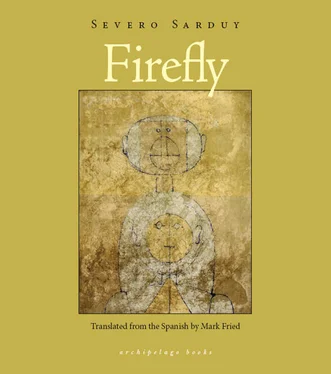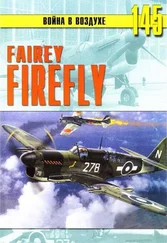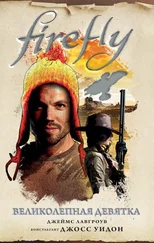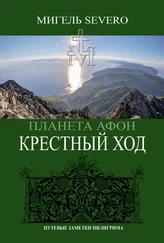Isidro was breaking up the bread crumbs left on the tablecloth and devouring them compulsively. He tried to make the doughy ones into figurines, but they all came out grotesque, like ugly big-nosed priests.
The poor buzzing insect managed to breathe in the smoke and cough it out. He clenched his belly, bent toward the floor, tried to throw up. But he could not. His red-rimmed eyes spun out of their orbits.
“Again, dammit!” was the executioner’s only response. “Again! Let’s see if you can learn!”
Firefly sucked in air. He thought about his sister. He looked around for help.
That was when Isidro, without a word, and with that instantaneous energy only hatred can produce (had it germinated slowly between them like a miasma, an emanation of deep-seated rivalry or reciprocal envy?), knocked Gator aside with a sharp slap to the face.
The reptile teetered. He grabbed onto a chair. He straightened as if preparing to return the affront. Indignation made his eyes glassy. He looked at the kitchen knife. His right hand trembled for a moment. Then he turned toward the door, stepped determinedly through it, and slammed it shut behind him.
Without a glance at Firefly, without any gesture of reproval or satisfaction, and in no hurry, Isidro followed him.
The melon-head was left alone in the cubicle. A sick silence again took hold of everything, an exasperating calm, like after a curse. Or the filth of sex.
Firefly then contemplated the city from another window.
The sky was leprous. Humidity and heat, like acid, had corroded the soaring façades piled upon one another; purple peelings, like scabs or oozing cankers, curled from broken lintels, triangular porticos, and cracked volutes. On the sagging roofs nested seabirds, speckled lizards with spiny tails, raucous macaws, and mesmerized cats, indifferent to the hordes of rodents.
Making his way down the winding cobblestone alleys, amid the cries of washerwomen and the scurrying of pickpockets and children, was an emaciated blond teenager, long-haired, barefoot, and bearded, wearing a violet-and-gold cape and hauling a wooden cross. With his right hand he held up a sign: crude red letters announced the apocalypse and called on the pope to reveal the prophecies of Fatima.
Heading in the other direction, unperturbed by the prediction, was a stout black man, his muscled chest shining with sweat, as if swathed in dusky silk, under the weight of the casket on his back.
The geometries of windows, semicircular arches held by slight copper frames, stood out in the fractured walls above doorways splayed permanently open. Scarlet, lime-green, mustard, and amethyst windowpanes projected daubs of color onto the tiled floors of darkened rooms, deforming their polished checkerboards of floral motifs and sweeping still lifes.
On one façade, above a trim of broken tiles and alongside a stucco niche containing a hairless and bloodied Christ with slanty eyes — a relic of Macao — a few tarnished gold letters remained.
Clothes floated on lines; flapping in the hot wind that presaged a storm were mended handkerchiefs, yellowing lace bedcovers, silver dresses, dazzling rags fit for welcoming an orisha’s descent or for leading a sumptuous procession.
From afar came the sounds of raucous jingle bells, off-key horns, and damp maracas from some fiesta; a strong aroma wafted in: grated coconut with butterscotch.
Downstairs, Firefly thought he heard something like the stumbling of a drunk. Then the big bolt opening. And the slamming of the door.
The wind blew hard. The rain had begun.
He understood then that he was expecting someone, but was convinced that no one was going to come .
*So, the prediction returns.
He decided to escape. That morning he took a long look at himself in the mirror, deep into his own eyes. He ran his index finger along the fuzzy shadow above his lips. By now, his bamboo-flute tones were breaking into sudden bass notes that belonged to a voice nothing like his own: that of the someone else he would later become, but who was already keeping watch over him like a resourceful double from the vantage of his future, where all things appear ideal, incorruptible, until the present devours them.
He could make no sense of the reality around him. Such murkiness was lethal. The intrigue of the inexplicable visits, but one example of the pervasive darkness, threatened him like a daily warning blown his way by the Toothless One.
Suddenly one afternoon, like just before an earthquake, everything fell silent. The sky turned into a gray metal plate, insufferably heavy, that seemed to keep watch, mirrorlike.
The goldfish, as if struck by an electric current, jumped in unison out of the pond and did full somersaults on the cement floor up to the foot of the ceiba tree. As fast as he could, Firefly collected them and tossed them, still covered in dirt, back into the water. Though slowly, some of them began to swim again, seeming half asleep; others floated belly-up, shaken by brief spasms. Firefly scolded them, threatening famine, nets, feral cats, and he pushed them about with his cupped hands.
It was useless.
They lay at the edge, motionless except for a slight bobbing on the puny green-specked waves, lockjawed.
Firefly picked them up again, this time frantically. He dropped them into the deep holes where the lizards nest, down among the big strong roots of the ceiba.
The iron knocker on the main door rang out.
Munificence was waiting in the first-floor pantry with a tray of meringues, still warm, that she herself had painstakingly whipped and baked all morning long and whose whitish and satiny-wet appearance made them look more like the spiral excrement of a brooding hen than the refined output of a swanky patisserie.
She left the tray on a small round table and went to open the door.
It was two witches.
Each was enveloped in wrinkled, austere, uniform black, to which they had added black-and-white checkered headscarves whose ends draped like flexible chessboards around their necks and down their backs.
Crowning this cloak of armor was the unequivocal emblem of iniquity: mirrored sunglasses, which in place of the observing gaze return the intrigued spectator’s own questioning image, miniaturized to reflect the true dimensions of his self-importance, just to bring him down a peg.
The two mourners, however, were quite distinct: complementary inverse omens of danger. Or better yet: snakes, which though already sated, suck on each other, perhaps to replenish their poisons. The one who entered first was stout and striking; despite her somber attire, around her hips garlands of lusty fat stood out, and jutting from under her kerchief were three decreasing rows of plump double chins. The other, on the contrary, was a long tall drink of water, her headscarf held in place by an intricate onyx brooch in the shape of two leaves of holly, which clawed at the fabric like a crab. As for her shoes, it looked like a frightened lizard had wrapped itself around her feet.
They mounted the stairs at full tilt without tripping or taking in the mess on the first floor, as if they already knew the ins and outs of the place. Munificence led the way, plate of meringues in hand, making Versailles-esque gestures and flustered excuses about the perpetual disorder that reigns among men of the law.
But there was something else: the Venetian tower that had always crowned her head like an albino battlement held erect by hair spray. was gone.
Supposedly enthralled by the latest fashion, Munificence had turned up at the barbershop pleading for the utter annihilation of that extravagant edifice. That was her way, she clarified exhilarated, of celebrating.
The haircut came out, Firefly noted, patchy, jagged, and bristly. Something did remain of those golden strands. But now they stood on end atop a bluish cranium, close-cropped around the sides. A veritable buzz cut, poor woman.
Читать дальше












